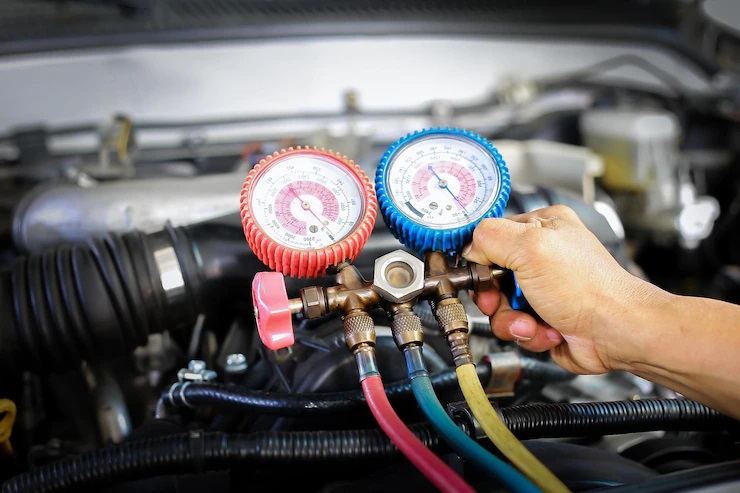The symphony of modern businesses plays to many rhythms. Among these, the hum of commercial air compressors often forms a crucial beat. These machines, though similar in fundamental operation to their industrial siblings, bear distinct features and roles tailored to commercial requirements.
Distinguishing Commercial from Industrial
At first glance, commercial and industrial air compressors might appear similar. However, their differences are more than skin deep:
- Scale of Operations: While industrial compressors are built for large-scale, heavy-duty operations often running 24/7, commercial air compressors are designed for intermittent use, suiting the varied needs of businesses.
- Design Intricacies: Given the often space-constrained environments they operate in, commercial compressors tend to be more compact. Their designs prioritize ease of use and accessibility.
- Applications: The range of applications for commercial air compressor systems is vast. From powering pneumatic tools in auto repair shops to aerating aquariums in pet stores, their uses are diverse.
Where Do Commercial Compressors Shine?
In understanding the role of these machines, one can truly appreciate their significance:
- Medical & Dental Offices: Clean, compressed air is essential for powering various instruments without risking contamination.
- Retail & Small Businesses: Whether inflating balloons at a party store or spraying water in a bakery, commercial compressors are ever-present.
- Recreational Facilities: From inflating bounce houses to powering paintball guns, these machines add fun to many recreational activities.
- Craftsmanship Workshops: Artists and craftsmen rely on compressors for airbrushing, sandblasting, and other detailed work.
Selecting the Right Compressor: Factors to Consider
When venturing into the world of commercial air compressors, several considerations can guide an informed decision:
- Size & Capacity: While it might be tempting to invest in the largest unit available, it’s crucial to assess the actual air requirements of the business.
- Power Source: Depending on the location and availability of power outlets, one might opt for electrically powered or gas-powered compressors.
- Maintenance & Care: Commercial compressors, like any machinery, require regular upkeep. Platforms like fluid-aire dynamics offer insights into routine maintenance, ensuring longevity and optimal performance.
- Noise Levels: Particularly in environments like clinics or offices, a quiet compressor that doesn’t disrupt daily operations is essential.
- Budget & Quality: Balancing the initial investment with the long-term value and reliability of the compressor is crucial.
Embracing Evolutions in Air Compression
With advancements in technology, commercial air compressors are continuously evolving. Features like variable speed drives, better cooling systems, and energy-efficient designs are making their way into the market. Moreover, smart compressors with remote monitoring capabilities are allowing businesses to optimize operations, foresee issues, and reduce downtimes.
In the bustling arena of modern commerce, where efficiency and reliability are paramount, commercial air compressors stand as silent yet indispensable allies. Whether propelling a small business towards growth or ensuring smooth operations in larger ventures, their role remains undeniably central.














Comments